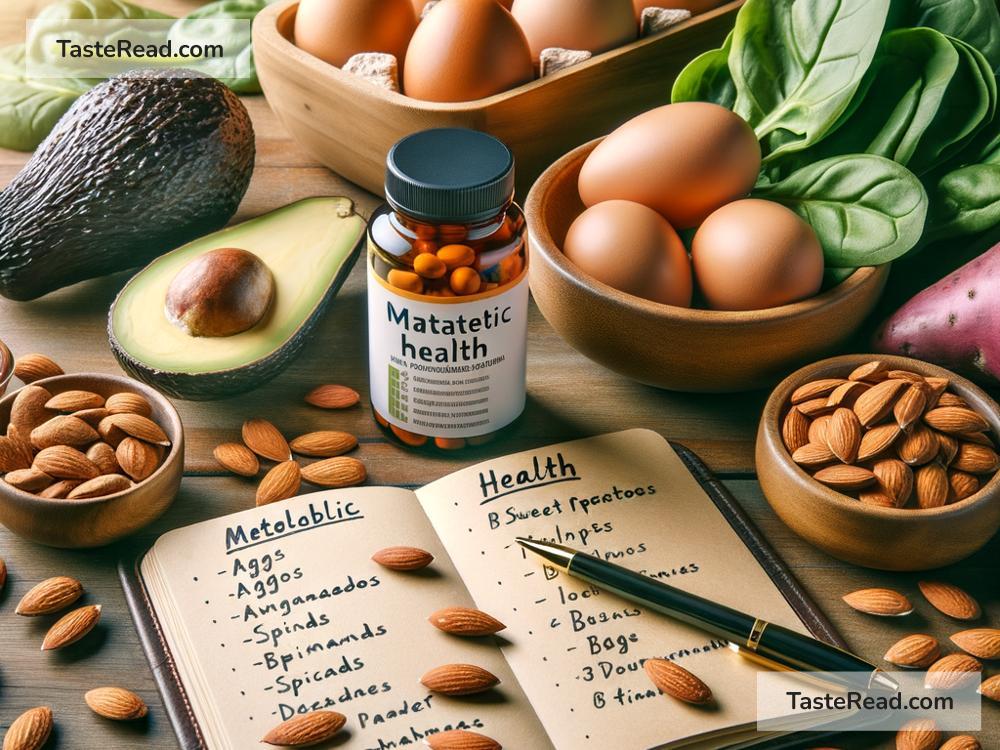The Role of Vitamin B7 in Metabolic Health: What You Need to Know
Metabolic health can feel like a complicated topic, but it’s basically your body’s ability to process nutrients and turn them into energy. Your metabolism is like the engine that powers everything your body does. To keep this engine running smoothly, your body relies on many vitamins and minerals. One of the unsung heroes in this process is Vitamin B7, also known as biotin. Let’s take a closer look at why this vitamin is so important for your metabolic health and how you can ensure you’re getting enough of it.
What Is Vitamin B7 (Biotin)?
Vitamin B7 is one of the eight B vitamins that help your body convert food into energy. It’s a water-soluble vitamin, meaning it dissolves in water and doesn’t get stored in your fat cells. This means you need to consume it regularly to keep your body supplied.
Biotin has many important jobs in your body, including helping enzymes break down carbohydrates, fats, and proteins. What does this mean in plain English? Biotin makes sure the food you eat gets turned into fuel to keep your body running. Without it, your metabolism might stumble, leading to low energy and other problems.
Why Is Vitamin B7 Important for Metabolic Health?
Your metabolism is like a machine made up of smaller working parts, and biotin helps keep that machine running smoothly. Here’s how Vitamin B7 supports metabolic health:
1. Supports Energy Production
When you eat food, your body breaks it down into smaller components like glucose (sugar), fatty acids (fats), and amino acids (proteins). Vitamin B7 helps enzymes involved in this breakdown process. These enzymes are like workers in a factory, using raw materials (your food) to create the end product—energy.
Without enough biotin, your body might struggle to produce the energy you need to stay active and focused throughout your day.
2. Helps Maintain Healthy Blood Sugar Levels
Biotin plays a role in regulating how your body responds to sugar. It works together with insulin (a hormone that helps process sugar in your blood) to ensure your blood sugar levels stay balanced.
This is especially important for people at risk of diabetes or those who want to maintain healthy blood sugar levels. Stable blood sugar levels also reduce sugar crashes, helping you avoid fatigue and cravings for unhealthy snacks.
3. Supports Fat and Protein Metabolism
Your body needs biotin to help break down fats and proteins properly. This is crucial because fats and proteins are essential building blocks for your body. Proteins are used to build muscles, skin, and organs, while fats provide long-term energy and help absorb important vitamins like A, D, E, and K.
Biotin ensures these nutrients are processed efficiently, keeping your body functioning at its best.
Signs of Biotin Deficiency
Luckily, biotin deficiency is rare, but it’s still important to recognize the symptoms in case you’re not getting enough. Common signs of low biotin levels include:
- Fatigue or low energy
- Thinning hair or hair loss
- Brittle nails
- Dry or scaly skin
- Muscle pain or weakness
- Poor concentration or brain fog
If you notice any of these symptoms, it may be worth talking to your doctor to find out if you need more biotin in your diet.
How to Get Enough Vitamin B7
The good news is that biotin is found in a variety of foods, so most people can get enough through their diet. Here are some biotin-rich foods to include in your meals:
- Eggs (especially egg yolks)
- Nuts and seeds (like almonds, walnuts, and sunflower seeds)
- Legumes (like peanuts, lentils, and soybeans)
- Whole grains (like oats and barley)
- Meat and fish (like beef, chicken, and salmon)
- Fruits (like bananas and avocados)
- Vegetables (like sweet potatoes, spinach, and broccoli)
Cooking can sometimes reduce the biotin content in foods, so eating raw or lightly cooked foods—when safe—can help maximize your intake.
Can You Take Biotin Supplements?
For most people, a balanced diet will provide all the biotin your body needs. However, some people might benefit from supplements, especially if they have health conditions that make it harder to absorb nutrients. Pregnant women, nursing mothers, and those with conditions like Crohn’s disease may need extra biotin.
If you’re considering supplements, always consult your doctor first. Taking too much biotin won’t give you supercharged metabolism, and excessive amounts may interfere with medical tests.
Final Thoughts
Vitamin B7, or biotin, is a key player in keeping your metabolic engine running smoothly. It supports energy production, helps regulate blood sugar levels, and ensures that fats and proteins are properly processed. Although biotin deficiency is rare, eating a balanced diet rich in biotin-containing foods can go a long way in supporting good metabolic health.
Take care of your metabolic health by prioritizing nutrient-rich foods, staying active, and drinking plenty of water. Your body will thank you by giving you the energy and endurance to tackle the day!
Have you ever thought about how vitamins impact your overall health? Let us know how you ensure a balanced diet in the comments below!


